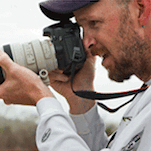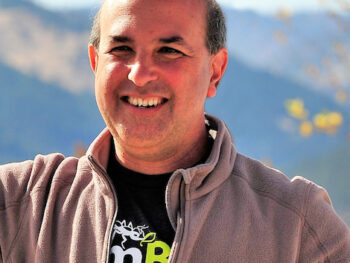
A Lesson from SABER
Biology students need and want more training in philosophy! More specifically, they want training in logic. So began a surprising and captivating talk by neuroscientist Dr. Mays Imad at a recent meeting of the Society for the Advancement of Biology Education Research (SABER) west.
Dr. Imad majored in philosophy before turning to neuroscience, which is why as a professor at Pima Community College she includes a module on critical thinking and logical reasoning. Without fail, this is the module with which her students struggle most. Nevertheless, when Dr. Imad recently polled her students all—and yes, I do mean all—reported that they thought introductory biology courses should include a module on logic, argumentation, and fallacies. Indeed, some students thought that biology departments should offer an entire course on logic and that it should be required! And, it makes sense. Logic forms the backbone of the experimental method. Scientists build formal arguments, known as hypotheses, and then use these hypotheses to generate predictions that they can test. Poorly constructed arguments with false fundamental premises or flawed internal logic are not simply weak; they are untestable and thus worthless. And they are all around us: logically flawed arguments often form the basis of frustrating public debates about everything from the efficacy of vaccines, to the significance of evolution in driving biological diversity, to the reality of climate change.
As an ecologist who has written extensively about climate change, I repeatedly see pundits, politicians, and other gadflies repeating the same flawed arguments to spread misinformation about the nature and origin of modern warming trends. These arguments are always logically flawed. In fact, John Cook and his colleagues recently published a fantastic deconstruction of the most common arguments used by deniers to sew doubt about climate change and the role humans play in driving it. The paper’s video abstract offers some humorous examples of how to deconstruct misinformation and is well worth watching (even if you don’t want to read the full paper)!
As Cook et al. demonstrate, scientists are very good at formally breaking down arguments and evaluating their logical validity. And these are exactly the skills that both professors and students identify as central to a good college education, begging the question: how can we help students develop these logical reasoning skills?
Dr. Imad decided that the best way to help her students was with an intervention. She expanded her unit on critical thinking and logical reasoning by developing a multi-step assignment that students completed over the course of two weeks. They began by identifying the logical fallacies in some advertisements. Then, they explained the problems with these ads to family members and quizzed them to make sure they understood. Only then were they asked to complete the rest of the assignment, including explaining their analysis to small student groups and, ultimately, the broader class.
The intervention’s capstone challenges students to create their own ad with two subtle logical fallacies, and then show it to their family to see if they could spot them. Students were surprisingly—distressingly—good at creating arguments with logical flaws that were hard to spot. More importantly, they had improved their ability to identify the logical flaws made by others. Test scores improved and students gained confidence in their ability to critically evaluate information. And isn’t this the goal? After all, regardless of what students do when they leave school, the most important skill they can take with them is the ability to critically assess the arguments they read in a newspaper or hear on TV.
If you would like to learn more about Dr. Mays approach to Teaching and Assessing Qualitative Reasoning in STEM Courses, she is offering a webinar through the Summer Institutes on Scientific Teaching. And if you would like to contact her to request her course materials, you can email her here: mimad_AT_pima_DOT_edu.
If you’re not familiar with SABER and you’re interested in biology education research, it’s a rally neat organization. They’re in the process of updating their website (http://saberbio.org), so if it doesn’t load, try again soon!
*******************************
– Dr. John Roach is lead author and architect of Climate Change and several other SimUText Ecology® chapters and labs. He also periodically teaches Ecology at the University of Montana and has a wicked good slap-shot!







